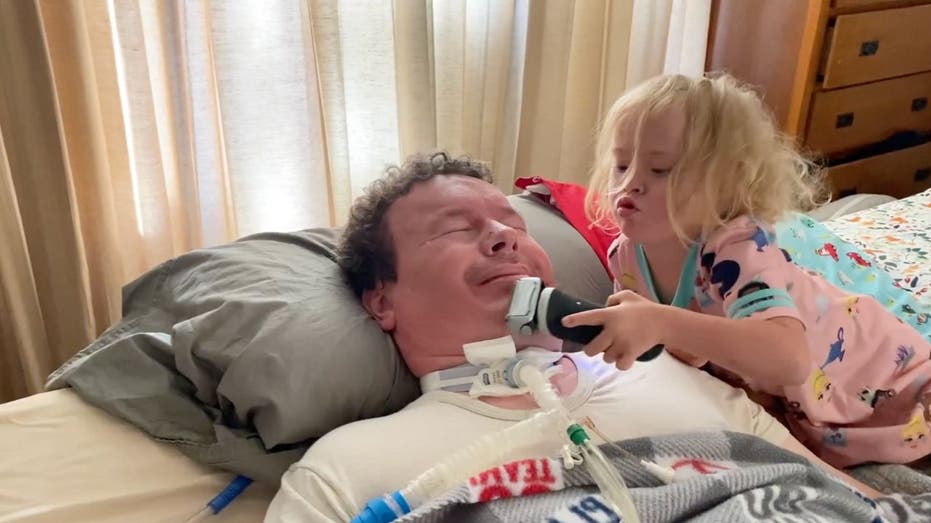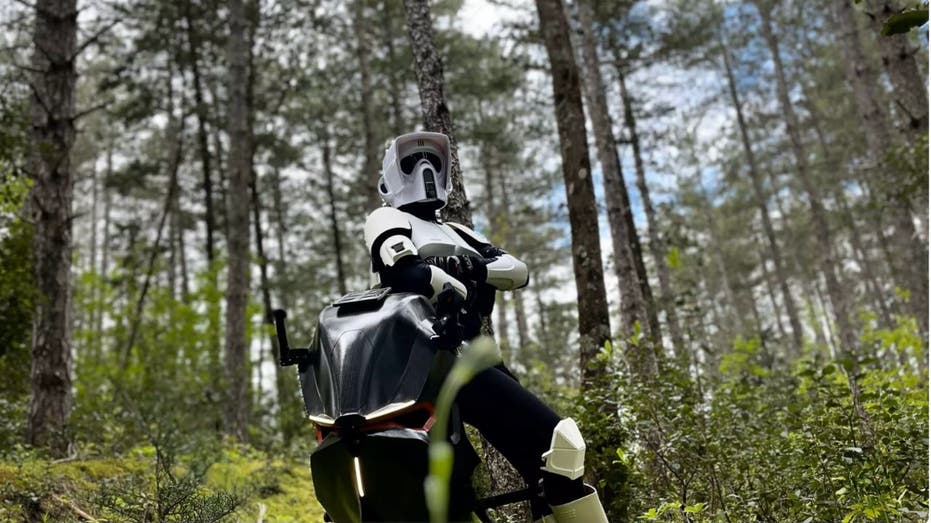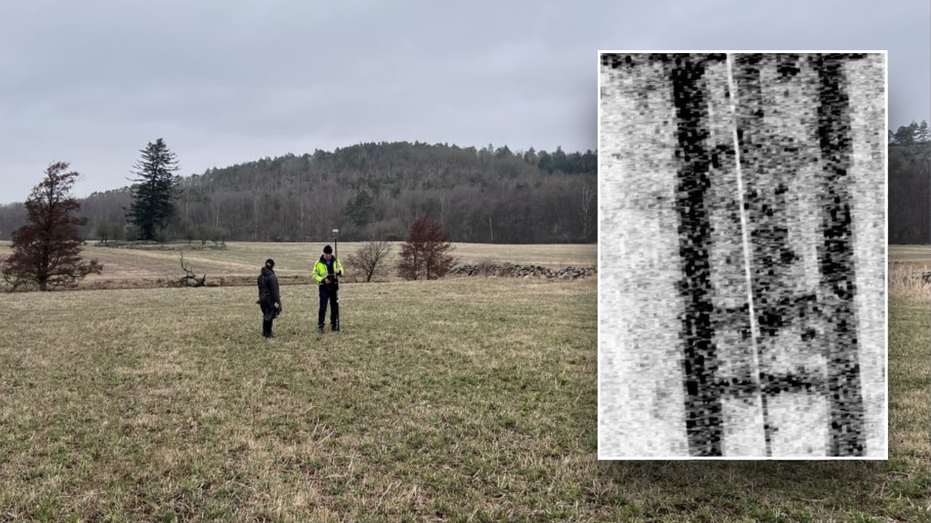- by foxnews
- 02 Jun 2025
Brain implant enables ALS patient to communicate using AI
Brad G. Smith, an ALS patient, regains communication abilities with a Neuralink implant, illustrating the potential of brain-computer interfaces in aiding speech impairments.
- by foxnews
- 01 Jun 2025
- in technology

Imagine losing your ability to speak or move, yet still having so much to say.
But thanks to a groundbreaking Neuralink brain implant, Smith is now able to communicate with the world using only his thoughts.
Smith is the first non-verbal person and only the third individual worldwide to receive the Neuralink Brain-Computer Interface (BCI). The device, about as thick as five stacked coins, sits in his skull and connects to the motor cortex-the part of the brain that controls movement.
Tiny wires, thinner than human hair, extend into Smith's brain. These pick up signals from his neurons and transmit them wirelessly to his MacBook Pro. The computer then decodes these signals, allowing Smith to move a cursor on the screen with his thoughts alone.
Learning to use the system took some trial and error. At first, the team tried mapping Smith's hand movements to the cursor, but it didn't work well. After more research, they discovered that signals related to his tongue were the most effective for cursor movement, and clenching his jaw worked best for clicking. "I am not actively thinking about my tongue, just like you don't think about your wrist when you move a mouse. I have done a lot of cursor movements in my life. I think my brain has switched over to subconscious control quickly so I just think about moving the cursor," Smith said.
The Neuralink implant has given Smith new ways to interact with his family and the world. He can now play games like Mario Kart with his children and communicate more quickly than before. The system includes a virtual keyboard and shortcuts for common actions, making tasks like copying, pasting and navigating web pages much easier.
Smith also worked with Neuralink engineers to develop a "parking spot" feature for the cursor. "Sometimes you just wanna park the cursor and watch a video. When it is in the parking spot, I can watch a show or take a nap without worrying about the cursor," he explained.
To speed up communication even more, Smith uses Grok, Elon Musk's AI chatbot. Grok helps him write responses and even suggests witty replies. "We have created a chat app that uses AI to listen to the conversation and gives me options to say in response. It uses Grok 3 and an AI clone of my old voice to generate options for me to say. It is not perfect, but it keeps me in the conversation and it comes up with some great ideas," Smith shared. One example? When a friend needed a gift idea for his girlfriend who loves horses, the AI suggested a bouquet of carrots.
Smith's journey has been shaped by more than just technology. He credits his wife, Tiffany, as his "best caregiver I could ever imagine," and recognizes the support of his kids, friends and family. Despite the challenges of ALS, Smith finds meaning and hope in his faith. "I have not always understood why God afflicted me with ALS but with time I am learning to trust his plan for me. I'm a better man because of ALS. I'm a better disciple of Jesus Christ because of ALS. I'm closer to my amazing wife, literally and figuratively, because of ALS," he said.
Neuralink's technology is still in its early stages, but Smith's experience is already making waves. The company recently received a "breakthrough" designation from the Food and Drug Administration for its brain implant device, which hopes to help people with severe speech impairments caused by ALS, stroke, spinal cord injury and other neurological conditions.
Neuro-ethicists are watching closely, as the merging of brain implants and AI raises important questions about privacy, autonomy and the future of human communication.
Smith's story is about resilience, creativity and the power of technology to restore something as fundamental as the ability to communicate. As Smith puts it, "Neuralink is giving me freedom, hope and faster communication. Overall, the whole Neuralink experience has been fantastic. It has improved my life so much. I'm so happy to be involved in something big that will help many people." While ALS "really sucks," as Smith says, his journey shows how innovation and determination can bring light to even the darkest rooms. And perhaps most importantly, it reminds us that behind every breakthrough, there are real people, real families and real stories of hope.
Follow Kurt on his social channels:
Answers to the most-asked CyberGuy questions:
New from Kurt:
Copyright 2025 CyberGuy.com. All rights reserved.
- by foxnews
- descember 09, 2016
History buff uncovers lost medieval monastery thanks to strange map symbol
Swedish archaeologists uncovered medieval monastery ruins in Derome, thanks to a history enthusiast's research of old maps and advanced radar technology.
read more




